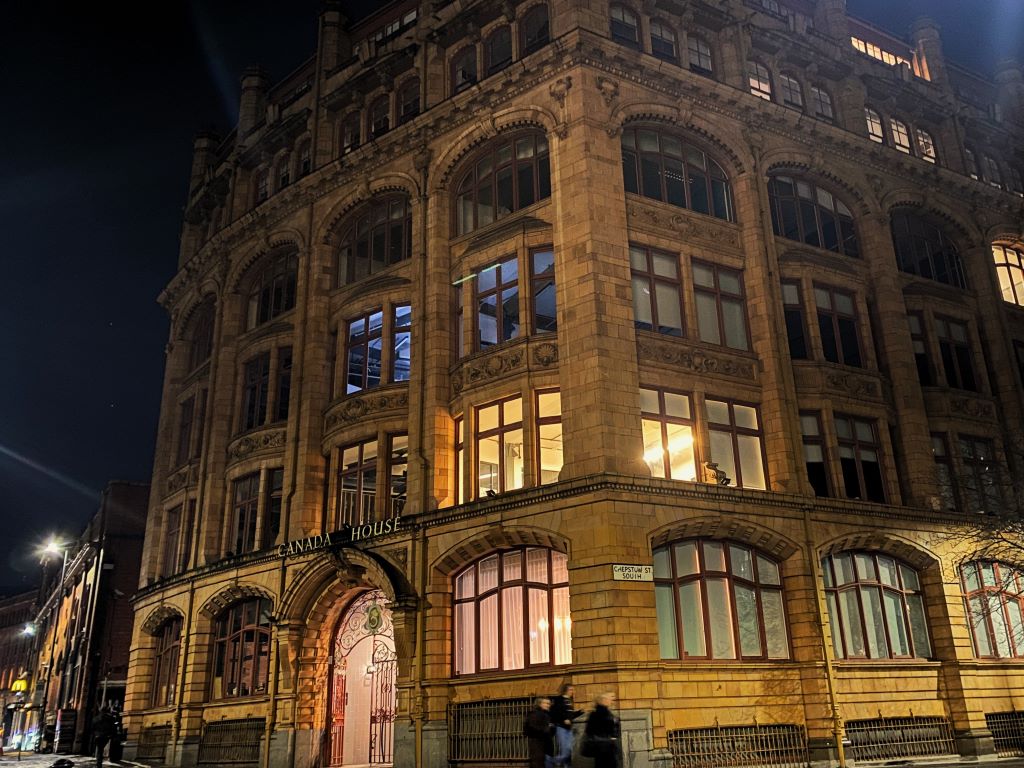Northern Futures: promises, promises
 After attending yesterday's Northern Futures Conference in Leeds hosted by Nick Clegg, editor Paul Unger offers his thoughts at a key time in regional power-broking.
After attending yesterday's Northern Futures Conference in Leeds hosted by Nick Clegg, editor Paul Unger offers his thoughts at a key time in regional power-broking.
Organised by the Office of the Deputy Prime Minister and research charity Centre for Cities, the day-long programme was heavily packed with more than 30 speakers debating policies and ideas that will hopefully make the North a greater economic force. Among the highlights were economist Jim O'Neill with his thoughts on regional devolution and Harvard Professor Ed Glaesar's fascinating insight to what makes successful cities in the US, projected onto the UK picture.
All six hours are now viewable here on YouTube (Jim O'Neill appears at 53 minutess, Prof Ed Glaesar at 5 hours). The agenda, Clegg's speech and some of the ideas pitched are on the Northern Futures website here .
With Northern Powerhouse a buzz phrase and if Monday's devolution deal for Greater Manchester is a sign of things to come, we will be promised a lot in the North over the next six months. If half of it sticks after the general election in May we will be in a better position than we are now. Clegg said he wants Leeds and Sheffield's plan agreed before the Autumn Statement on 3 December.
But what would other North West areas do with the powers anyway? Are other city regions ready? The leadership and vision of a group of bidding authorities dictates the reception by Whitehall. Without a clear plan and unified leadership, do councils still expect a deal?
Manchester was inevitably mentioned a lot yesterday. It gets a plan straight, it commissions economists to gather evidence to back its case, it agrees the hub-and-spokes approach from behind closed doors with outlying boroughs and emerges into the public glare with a shared script. And it tries not to take to the streets to march against government policy, as Liverpool leader Joe Anderson did; instead it advises London on the Olympics and hosts the Conservative Party Conference. Lobbyists assure me Manchester leader Cllr Sir Richard Leese has regular telephone calls with George Osborne to discuss the future of the city. Arguably this compromise approach predates Leese and Bernstein to a deal between leader Graham Stringer and PM Margaret Thatcher in the 1980s that marked the end of noisy, angry opposition and the start of quiet, polite trading. The continuity of this approach to the present is amazing.
Still, Manchester is no exception to territorial battles: congestion charge, Trafford Centre v city centre retail, the move of BBC to Salford or First Street. Digital business contacts repeatedly tell me Manchester Town Hall's enthusiasm for the digital creative sector is matched by its favouritism for its own Sharp Project, to the detriment of other initiatives that could elevate the city's status further in this technological era.
Down the M62, the debacle that marked the launch of the Liverpool City Region Combined Authority, when the name and the chairmanship were publicly squabbled over between council leaders, casts doubt on its own devolution credentials. The failure of Liverpool to bang heads together to find a home for the doubling in size of the School of Tropical Medicine, a world leader in malaria research backed by Bill Gates bursting at the seams which should be as famous as graphene in Manchester, shows a lack of cooperation on a fundamental level within the four walls of the city. A senior Liverpool City Council investment officer asked me recently for introductions to the estates directors at the universities, which beggared belief. This row is repeated in Preston over the direction of the expansion of UCLan in the city centre. Across the Pennines, anyone working in Leeds or Sheffield knows the rivalries that exist.
If cities can't cooperate internally or in groups today, will they be any better placed if they have additional powers tomorrow – apart from having new toys to fight over?





Thank you for your interesting insights here.
By Herb Kim
In simple, Paul, yes they will get on in gthe future.
By paulpotts
Well they’ll have to won’t they if they want a slice of #DevoPie…
By ManPool
awful article, writer is clueless
By James
I’m sorry but how exactly does the as yet unfinished Manchester Graphene Centre rank as more famous than the Liverpool School Of Tropical Medicine? You must be living in some kind of parallel universe there. Yes Manchester scientists can lay claim to rubbing sellotape against a lump of carbon but they haven’t developed any real world applications for the technology have they? That’s not to undermine the achievement but let’s face it they haven’t done anything yet have they – including moving the staff in. Most of the Graphene patents originate in China and the USA. The UK has it all to do if it is to gain anything from this discovery. The Liverpool School of Tropical Medicine is however a world leader in developing treatments for Malaria and many other pathogens that kill millions. The point is, your Manchester triumphalism is misplaced and it’s really sad to see the editor of this website taking parochial potshots at a region it is supposed to represent. Poor work indeed.
By James T